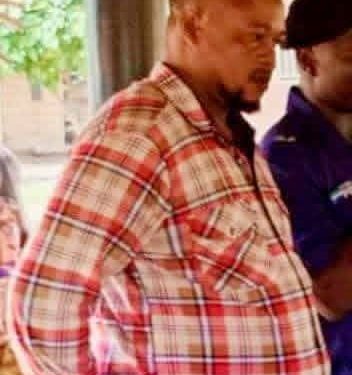By Hassan Osman Kargbo
In a decisive move that demonstrates the Sierra Leone Police’s growing intolerance for internal corruption and misconduct, a senior officer, Sergeant M. S. Swaray has been arrested and transferred to the Transnational Organised Crime Unit (TOCU) in Freetown for further investigation after being found in possession of drugs at his residence.
Sergeant Swaray, with Police Number 14483, served as the Divisional Crime Officer at Mile 91 Police Station in Tonkolili District. He was arrested following an intelligence-led raid conducted by an anti-drugs team from the Northern Regional Police Headquarters in Makeni. The operation, according to police sources, was based on credible information that the officer was in possession of substances believed to be Kush and Tramadol.
During the raid at the Mile 91 Police Barracks, where Sergeant Swaray resided, officers discovered quantities of the illicit substances concealed in his living quarters. The discovery immediately raised concerns about the potential involvement of law enforcement personnel in the drug trade, a growing national problem that authorities have vowed to confront head-on.
When questioned, Sergeant Swaray reportedly claimed that the drugs found in his possession were “exhibits” from an ongoing case and that he had taken them home for “safekeeping.” However, police investigators deemed his explanation a clear breach of established procedures. Under Sierra Leone Police regulations, seized items classified as exhibits are to be stored securely at designated police facilities and never in private residences.
Senior police officials swiftly ordered his immediate transfer to TOCU in Freetown, a specialized unit tasked with investigating serious crimes including drug trafficking, money laundering, and organized criminal activity. The move, according to police insiders, was intended to ensure an independent and thorough investigation free from local influence.
“The decision to transfer the case to TOCU is part of our commitment to maintaining integrity within the force,” a senior officer told reporters. “No one is above the law, not even our own officers. The public must have confidence that we will hold ourselves accountable.”
The arrest has sparked widespread public reaction, with many Sierra Leoneans expressing support for the firm action taken against the officer. Some community members view it as a long-overdue step toward restoring faith in law enforcement institutions, which have often faced criticism over internal corruption and misconduct.
Civil society groups have also praised the police leadership for its transparent handling of the matter. They argue that the fight against drug abuse and trafficking cannot succeed unless the security forces themselves are free of compromise.
The Sierra Leone Police has been under increasing pressure to tackle both the rising consumption of Kush, a potent synthetic drug ravaging youth communities, and the infiltration of the force by individuals aiding or abetting the illegal trade.
As the investigation continues at TOCU headquarters in Freetown, authorities have reiterated their commitment to enforcing discipline and upholding the integrity of the service. The outcome of this case is expected to set a strong precedent for future accountability measures within the Sierra Leone Police.
The police leadership has sent a clear message: misconduct will not be tolerated, and every officer must uphold the law they are sworn to protect.











